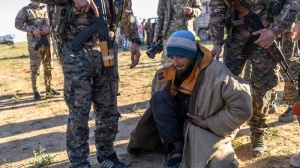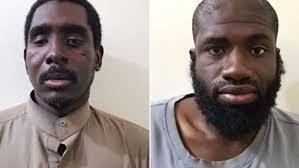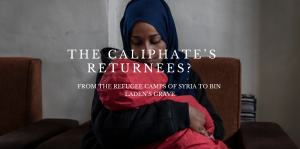President Trump’s decision to outsource the mission to fight against the Islamic State of Iraq and the Levant (ISIL) to Turkey caught many observers off guard. In fact, allowing the Turkish military to carry out a military incursion in northeastern Syria has faced strong reactions in Washington D.C. and around the world. President Trump, who saw little justification in keeping the United States’ military in Syria after his declaration of victory against ISIL, gave a green light to Turkish President Recep Tayyip Erdogan to realize its long-awaited ‘safe zone’ in the area.
Having two major goals, Turkey aims to prevent the Kurds — Democratic Union Party (PYD) and the People’s Protection Units (YPG) — from having autonomy in Syria and resettle 1-2 million refugees in the safe zone. This is an especially complex political situation because Ankara considers the YPG as a terrorist organization under the guidance of the PKK, a far-left political entity with a contentious reputation internationally.
The initial plan is to establish a safe zone that will be 30 km (18 miles) and a length of 480 km (298 miles) that will allow resettlement of up to 2 million Syrians refugees who have been in Turkey. But according to Erdogan, the safe zone could be extended to Raqqa and Deir ez-Zor which could host the Syrian refugees in Europe as well.
As ambitious as it sounds, the plan has received little support from any country, including the United States, European Union (EU) member states, and several Middle Eastern countries. In the United States, except for Trump’s consent, the entire US Congress and most of the administration oppose the incursion.
Erdogan is attempting to balance numerous diplomatic interests in the Syrian conflict. For example, he proposes to the United States that Turkey could claim leadership of fight against ISIL while offering the Europeans a path to ease their burden of hosting refugees. He also proposed building hundreds of thousands of homes for the refugees in the safe zone which could boost the Turkish economy. So, it was supposed to be a ‘win-win’ for everyone.
The military incursion embodies several risks. For example, fighting between the Turkish military and the Kurds in Syria could create more refugees and internally displaced persons (IDP) in northeastern Syria. Particularly if the incursion will be extended and prolonged, this will force thousands of people to leave their homes which could mean that Iraq, Turkey, and eventually Europe could see another influx of refugees. Even more concerning is the idea that the safe zone would be used for resettlement of up to three million refugees. While there are Arab-majority areas in northern Syria, resettling Arab refugees in the area could lead other ethnic tensions and possible conflict between Arabs and Kurds.
Second, the Kurdish Worker’s Party (PKK) could carry out attacks in Turkey which could create another chaotic situation. While PKK has allocated several of its militants in the Syrian conflict, with sensational attacks, PKK could ignite a nationalist backfire against the Kurds given the emotional and heated psychological climate in the country. If the incursion leads to even a small-scale uprising in Turkey, the PKK would engage in opportunistic attacks. If the conflict between Turkey and the Kurds endures, Kurds in other countries, including Iran and Iraq, could rally around the Syrian Kurds. Contrary to what Erdogan and his government are trying to do, the operation could consolidate the Kurds in such a way that it could have several consequences for Turkey.
Fourth, feeling betrayed by the United States, the PYD would reach out to Damascus to seek closer relationship with Russia and the Assad regime which also would strengthen the Iranian influence over the Syrian Kurds. Syrian Kurds would rather have the Assad regime forces patrolling the Turkey-Syria border in the northern Syria than the Turkish military and Turkey-backed forces.
For Russia, the Turkish military incursion presents new opportunities. According to Moscow, while Turkey has a right to address its security concerns, it also should respect to the territorial integrity of Syria. In Russia’s view, Turkish military incursion can be tolerated as long as the Turkish military presence will not be prolonged. In other words, Russia sees Turkey’s move as an opportunity.
On the one hand, Turkey’s unilateral action contradicts with Moscow’s support for the territorial integrity of Syria and upsets the regime in Damascus. On the other hand, Russia sees the incursion as another opportunity to weaken the Western Alliances in which Turkey had been an important actor. Erdogan’s recent foreign policy decisions since the July 15, 2016 coup attempt have favored Russia in that Turkey aligned with Russia on many issues, including the Astana process; a series of initiatives and plans aimed to end the Syrian civil war.
Iran could benefit from the United States’ decision to pull out of critical areas in northeastern Syria too. This action provides Tehran with significant political capital to expand and deepen its area of influence in the entire Middle East.
Fifth, the region could witness another resurgence of ISIL. Recent experience in the region demonstrated that whenever there is ethnic and religious tension or a conflict, ISIL benefited from it. More importantly, Turkey’s record on fighting against ISIL is far from encouraging. Throughout the Syrian conflict, Ankara had turned a blind eye to the foreign terrorist fighters who have used Turkey as a transit country. Grave allegations that the Turkish government has provided extremist groups with weapons and other ammunitions discourage any expectations about the capability and willingness of the government to handle the ISIL threat in the region properly.
While in the short term the military incursion is helping Erdogan to consolidate popular support in Turkey, in the long term it could weaken his position both domestically and internationally. Already facing a lot of criticism and potential sanctions by the United States, if Erdogan cannot deliver the intended outcome of the operation, the military incursion could be very costly for him and Turkey.
Editor’s Note: Suleyman Ozeren, the Director of the Middle East and North Africa Counterterrorism program at Rise to Peace, provides comprehensive analysis of the many repercussions of the ongoing Turkish military operation in northeastern Syria. It is especially important to consider conditions on the ground and the consequences faced by average civilians in the wake of recent developments. Shifts in the regional balance of power in the Middle East are connected to the quality of life for many people, therefore this topic must be seriously discussed.








